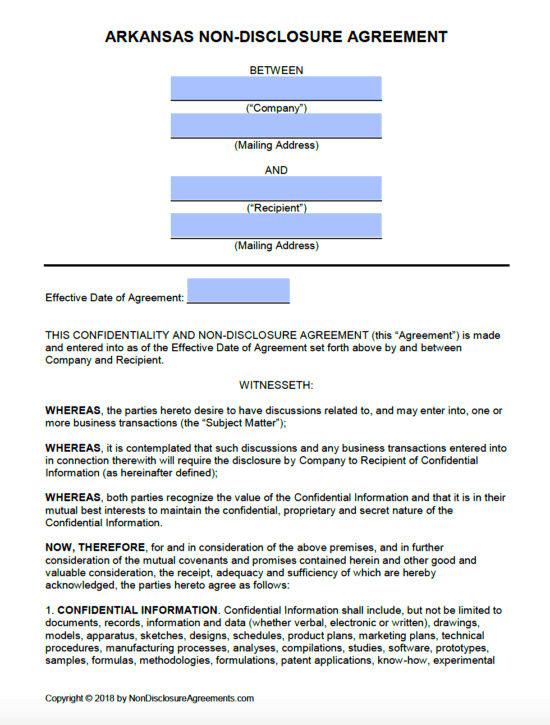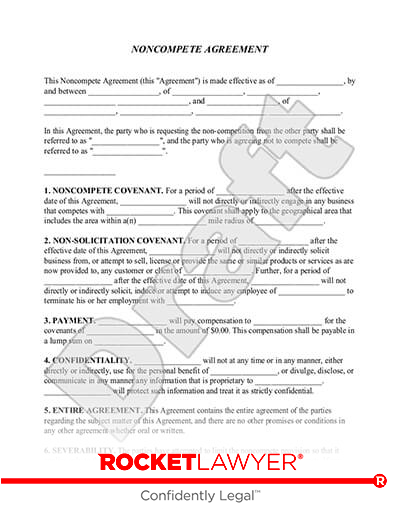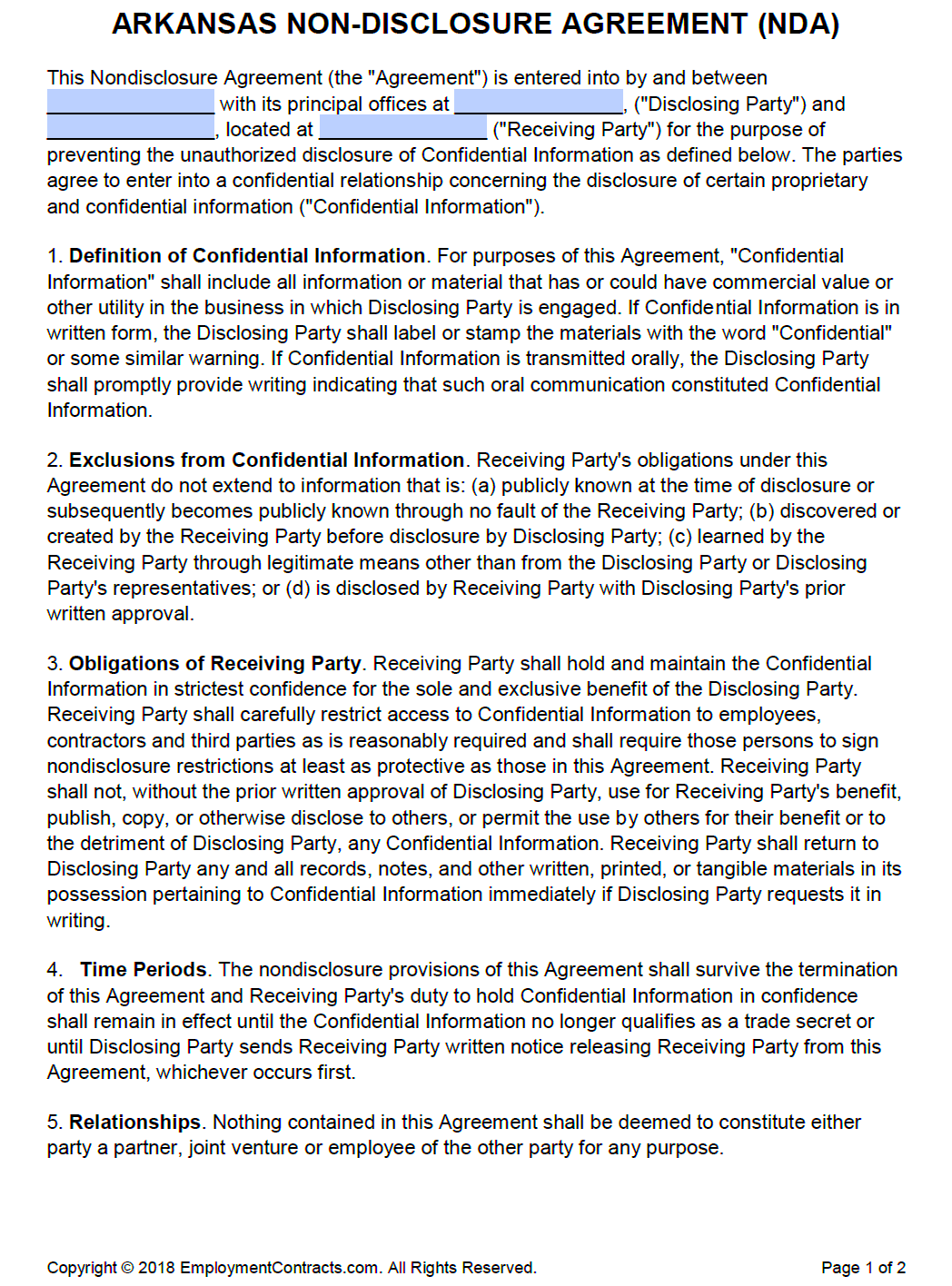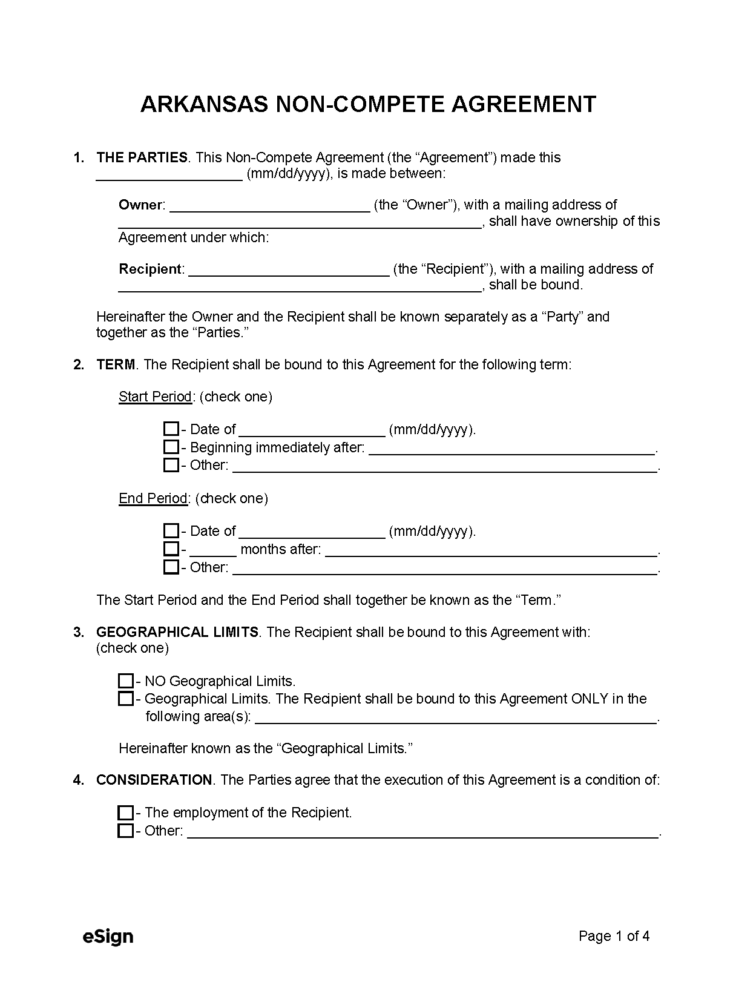Arkansas Noncompete Agreement Revisions Explained
Legal contracts known as noncompete agreements restrict employees from joining rival firms or establishing a comparable enterprise for a predetermined duration after they resign from their position. The main purpose of these arrangements is to safeguard business interests, trade secrets and sensitive data. Noncompete agreements in Arkansas should follow certain conditions for them to be applicable as both, employee’s rights to work need to be taken into account alongside protection of business.Clarity and fairness have become the primary focus of Arkansas’ recent updates to noncompete agreements. Below are the highlighted alterations:There are multiple reasons as to why updating noncompete agreements remains important:
Key Revisions in Arkansas Noncompete Agreements

- Scope and Duration: Revisions require that the scope and duration of noncompete clauses be reasonable and not overly restrictive. Agreements must clearly define what constitutes a competitive business.
- Geographic Limitations: Changes emphasize that geographic restrictions should be limited to areas where the business operates and where the employee had significant influence.
- Consideration: There must be clear consideration given to the employee, such as a promotion or additional compensation, to make the agreement enforceable.
- Specificity: The agreement should specify the types of activities or businesses that are considered competitive. Vague terms can render the agreement unenforceable.
- Employee Protections: Revisions include protections to ensure that employees are not unfairly restricted from finding work in their field of expertise.
Reasons for Updating Noncompete Agreements

- Legal Compliance: Laws and regulations governing noncompete agreements evolve. Regular updates ensure compliance with current legal standards and avoid unenforceable clauses.
- Business Needs: As businesses grow and market dynamics change, the need to protect proprietary information and business interests evolves. Revising agreements helps address these new challenges.
- Employee Relations: Fair and clear agreements help maintain positive employee relations. Transparent terms prevent disputes and enhance trust between employers and employees.
- Enforceability: Courts are more likely to enforce agreements that are clear, reasonable, and aligned with legal requirements. Regular updates improve the chances of enforcement.
- Competitive Landscape: In a competitive job market, ensuring that noncompete agreements are fair and reasonable can help attract and retain talent.
In Arkansas, there are certain legal requirements that must be satisfied by noncompete agreements in order for them to be enforced. This is important for both employers and employees alike to understand. Below are some of the key components:Both employees and employers can be significantly affected when they review the non-compete contracts:Several major stages should be followed in terms of reviewing a non-compete contract so as to make certain that the revised contract is effective and can be enforced.
Legal Requirements for Valid Noncompete Agreements in Arkansas

- Reasonableness: The terms of the noncompete agreement must be reasonable in scope, duration, and geographic area. The restrictions should not be overly broad or oppressive.
- Consideration: There must be adequate consideration, such as a raise, promotion, or signing bonus, provided to the employee in exchange for agreeing to the noncompete terms.
- Clarity: The agreement must clearly define what constitutes a competing business and what activities are restricted. Ambiguous language can lead to unenforceability.
- Employment Relationship: The agreement should be signed at the beginning of the employment relationship or in conjunction with a significant change in employment status.
- Legitimate Business Interests: The agreement must protect legitimate business interests such as trade secrets, customer relationships, and proprietary information. It should not be used to simply prevent competition.
How Revisions Affect Employees and Employers
- For Employees:
- Increased Fairness: Revisions that address unreasonable restrictions can lead to fairer terms, making it easier for employees to pursue new opportunities.
- Greater Transparency: Clearer terms help employees understand their rights and limitations, reducing the likelihood of disputes.
- Improved Job Mobility: Fair revisions can enhance job mobility by ensuring that employees are not unduly restricted from working in their field.
- For Employers:
- Enhanced Protection: Properly revised agreements can offer better protection for business interests while complying with legal standards.
- Reduced Legal Risks: Clear and reasonable agreements are less likely to face legal challenges and are more likely to be enforced in court.
- Positive Employee Relations: Fair agreements can improve relations with employees, leading to better morale and retention.
Steps for Revising a Noncompete Agreement
- Review Existing Agreements: Begin by thoroughly reviewing the current noncompete agreements to identify any problematic clauses or outdated terms.
- Consult Legal Counsel: Seek advice from a legal expert who specializes in employment law to ensure that revisions comply with current legal standards and requirements.
- Define Scope and Terms: Clearly define the scope, duration, and geographic area of the noncompete agreement. Ensure that these terms are reasonable and specific.
- Consider Employee Interests: Balance business interests with employee rights. Ensure that the agreement is fair and does not excessively restrict employees’ career opportunities.
- Update Agreement Language: Revise the language of the agreement to ensure clarity and precision. Avoid vague or ambiguous terms that could lead to enforceability issues.
- Communicate Changes: Clearly communicate the revised agreement to employees, explaining any changes and the reasons behind them. Ensure they understand their obligations and rights.
- Obtain Signatures: Ensure that all relevant parties sign the updated agreement. Consider providing additional consideration if required to make the agreement enforceable.
- Monitor Compliance: Regularly review and monitor compliance with the revised agreement to address any potential issues and make further adjustments if necessary.
To keep them from becoming unenforceable, revisions of non-compete agreements need more attention. Here are some common avoidable mistakes:The noncompete agreement world is changing due to alterations in businesses and legal prerequisites. Here are some trends to observe for:To make sure that the noncompete understanding will be enforced in Arkansas, it is essential that its breadth, time frame and area are all reasonable. Additionally, there should be fair compensation as well as protection of genuine business interests. Unambiguous and specific clauses must also be stated for the contract to be enforceable.So if a worker thinks that everything regarding non-compete deal is unreasonable, too strict or does not provide enough compensation, they can call for its review. The fairness of the agreement and whether it meets legal standards are usually the grounds for making such a challenge.It is important for organizations to regularly review and revise non-compete contracts so that they comply with present-day legal regulations, as well as meet any modifications in organizational requirements or market circumstances. A good tactic would be conducting yearly assessments.If noncompete agreement is extremely wide, has no enough consideration, contains ambiguous terms or fails to obey some local laws and regulations it can be cancelled as invalid. Besides, there may also arise certain disputes which challenge the validity of agreements that unduly restrict an employee’s ability to work.
Common Mistakes to Avoid When Revising Agreements
- Overly Broad Terms: Avoid creating terms that are too broad or restrictive. Noncompete agreements should be specific in scope, duration, and geographic area to ensure they are reasonable and enforceable.
- Lack of Consideration: Ensure that adequate consideration is provided to the employee in exchange for agreeing to the noncompete terms. Without proper consideration, the agreement may be deemed invalid.
- Vague Language: Use clear and precise language to describe restricted activities and competitive businesses. Vague terms can lead to misunderstandings and challenges in court.
- Ignoring Local Laws: Be aware of and comply with Arkansas-specific laws and regulations related to noncompete agreements. Failing to follow local legal requirements can render the agreement unenforceable.
- Neglecting Employee Rights: Avoid terms that unduly restrict an employee’s ability to find new employment. Ensure that the agreement is balanced and respects the employee’s right to work.
- Failing to Update Regularly: Regularly review and update noncompete agreements to reflect changes in business needs, legal standards, and market conditions. Outdated agreements may not be enforceable.
- Inadequate Communication: Clearly communicate the terms of the revised agreement to employees. Failing to do so can lead to confusion and disputes over the agreement’s enforceability.
Future Trends in Noncompete Agreements
- Increased Regulation: Expect more regulatory scrutiny and potential legislative changes that aim to limit the use of noncompete agreements, particularly in protecting employees’ rights.
- Focus on Fairness: There is a growing emphasis on ensuring that noncompete agreements are fair and balanced. Future agreements may include clearer terms and better consideration for employees.
- Technology and Remote Work: With the rise of remote work and technological advancements, noncompete agreements may need to address new issues related to virtual work environments and online competition.
- Alternative Dispute Resolution: Companies may increasingly use alternative methods for resolving disputes related to noncompete agreements, such as mediation or arbitration, to avoid lengthy court battles.
- Geographic Limitations: There may be a shift towards more precise geographic limitations in noncompete agreements, reflecting the actual reach of a business rather than overly broad regions.
- Employee Empowerment: As employee rights become more emphasized, there may be a push for agreements that allow for greater job mobility while still protecting legitimate business interests.
Frequently Asked Questions on Noncompete Agreements in Arkansas
- What makes a noncompete agreement enforceable in Arkansas?
In Arkansas, a noncompete agreement is enforceable if it protects legitimate business interests, is reasonable in scope, duration, and geographic area, and does not overly restrict the employee’s ability to find new employment. It must also be in line with state-specific laws. - Can an employee challenge a noncompete agreement?
Yes, an employee can challenge a noncompete agreement if they believe it is overly restrictive or unreasonable. Courts will review whether the agreement serves a legitimate business interest and whether it unfairly limits the employee’s ability to work in their field. - How often should noncompete agreements be updated?
Noncompete agreements should be reviewed and updated regularly, especially when there are significant changes in employment laws, company operations, or the industry. This ensures the agreement remains relevant, enforceable, and aligned with current legal standards. - What are common reasons for a noncompete agreement to be considered invalid?
A noncompete agreement may be invalidated if it is too broad in terms of duration, geographic scope, or the types of work restricted. Additionally, if it does not serve a legitimate business interest or is deemed unfairly restrictive, it may not hold up in court.
Conclusion:
Regularly updating noncompete agreements is essential to ensure they remain fair, enforceable, and compliant with current legal standards. By avoiding common mistakes, adapting to evolving legal trends, and addressing the changing needs of both employers and employees, businesses can craft agreements that protect their interests without infringing on workers’ rights. Revising these agreements not only ensures legal compliance but also fosters positive employer-employee relations, helping prevent disputes and ensuring fair participation in the labor market.


